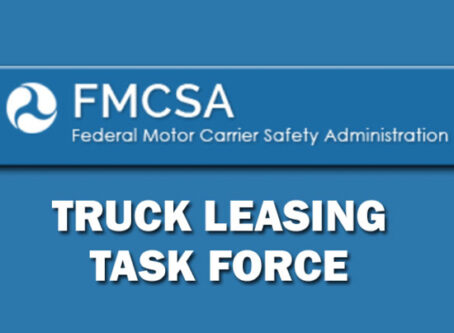FMCSA rejects another individual trucker’s exemption request
The third time was not a charm regarding an individual truck driver seeking an hours-of-service exemption from the Federal Motor Carrier Safety Administration.
In November, truck driver Wayne Moore Jr. asked the agency for an exemption, citing his experience and safety records. Moore was the third truck driver to make such a request in recent months. All three requests have been denied.
FMCSA is scheduled to publish a notice on Thursday, Feb. 23 that formally denies Moore’s request, which sought exemptions from the requirement for 10 consecutive hours off duty, the 14-hour driving window, the 30-minute break requirement, and the 70 hours in eight days limit.
“Mr. Moore failed to explain how he would maintain a level of safety equivalent to, or greater than, the level achieved without the exemption,” FMCSA wrote in the notice. “Although Mr. Moore stated that he would be responsible for ensuring that he has adequate rest and that he has an excellent driving record with no hours-of-service violations, those representations do not provide a basis from which the agency could conclude that the proposed exemption would provide an equivalent level of safety.”
Previously, Leland Schmitt Jr. and Ronnie Brown III asked for similar exemptions. Those requests were denied in November and January, respectively.
Moore’s application focused on his more than 25 years of experience and his safe driving record.
Moore said he wanted the ability to split off-duty time into periods that are more conducive to proper rest and sleep without having to comply with the current hours-of-service regulations. He sought a five-year exemption that would have applied only to him.
The agency received 79 comments on the request with 30 in support, 30 opposed, and the rest with no position on the issue.
Timothy Friel supported the request, suggesting that the agency should provide more leniency in the regulations to drivers who have demonstrated an ability to do their job safely.
“I think the FMCSA’s hours of service are unfairly restrictive to drivers and companies,” Friel wrote. “I feel that the FMCSA should take a three-step approach to the hours-of-service requirements and implement rules for 5, 10 and 15-year drivers who have demonstrated a level of safety equal to or greater than what was achieved with the hours of service.”
The Truck Safety Coalition, Citizens for Reliable and Safe Highways and Parents Against Tired Truckers spoke out against the request.
“We request this inadequately justified exemption to hours-of-service requirements be denied in full,” the safety groups wrote in a joint comment. “Large truck crash fatalities continue to increase at an alarming pace, and it is incumbent on the Department of Transportation and FMCSA to take every measure possible to reverse this trend and affirm life safety as its top priority by denying this request.”
The surge in individual exemption requests indicates frustration with the lack of flexibility in the current rules.
The Owner-Operator Independent Drivers Association has long argued that compliance with a regulation doesn’t always equal improved safety. In addition, OOIDA says that strict rules can lead to greater stress and more dangerous situations for the driver.
“As the nation emerges from the COVID-19 pandemic, FMCSA should take the lessons learned since March 2020 and apply them in ways that improve the quality of trucking jobs,” OOIDA wrote last year. “We believe granting additional hours-of-service flexibility will provide drivers more opportunities to rest when they are tired, to maintain greater control over their own schedules, and allow them to work more efficiently.”
OOIDA petitioned the agency in February 2018 to revise the hours of service. Some of those changes became reality in 2020. However, OOIDA believes the federal COVID-19 emergency declaration serves as proof that even more flexibility is appropriate. FMCSA reported that it was aware of only two crashes involving drivers operating under the waiver in more than two-and-a-half years.
“This shows that drivers are generally not going to abuse additional hours-of-service flexibility at the risk of highway safety,” OOIDA wrote to the agency in September. “An experienced driver will know when they need to rest or take a break, and this data shows that more practical hours-of-service rules allow drivers to use their time more efficiently without endangering other highway users. We encourage FMCSA to take further action to promote hours-of-service flexibility starting with expanded split sleeper options or letting drivers pause their 14-hour clock up to three hours if necessary.” LL









